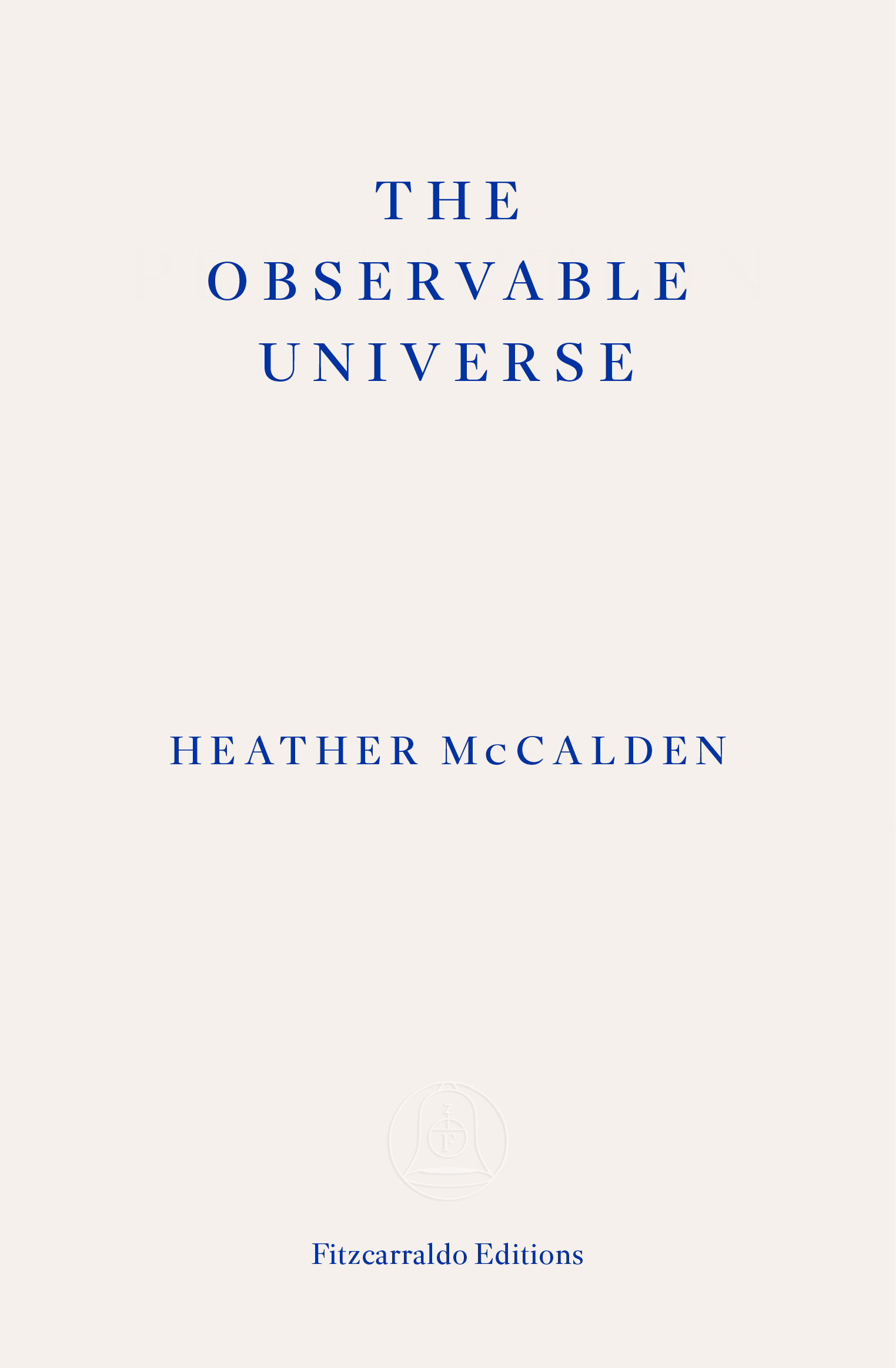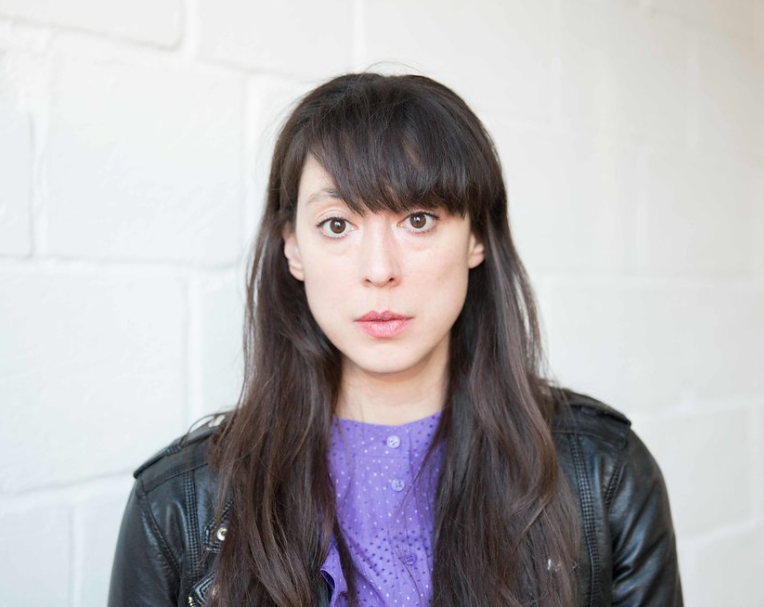Artist and writer, Heather McCalden, has produced her first book-length work. The Observable Universe examines, variously, her familial history, the death of her parents to AIDS, and the subsequent loss of her maternal grandmother, Nivia, who raised her. It’s a fragmentary work, but the medium (half-memoir, half-essay) responds to the author’s own sense of disconnection and uncertainty, and at its heart is an aching feeling of loneliness and grief.
Initially, the book seems to present the reader with the story of McCalden’s parents and her relation to them, but this is complicated by the mystery surrounding their lives (and deaths) and her own feelings around their absence. It becomes far more about Nivia, as she might be perceived alongside discussions on the development of the internet (and, later, viruses) and the simultaneous spread of HIV/AIDS. McCalden is clear that she is using metaphor throughout and turns frequently to consider her own use of rhetoric, including its limitations: “I have no sense my parents are dead. I simply have no sense of anything at all. What might the metaphor for that be?”. She attempts to find her family, then any family at all, watching episodes of familiar shows in order, perhaps, to understand these connections, which feel, in the end, like they will only deepen her feelings of estrangement.
 The parallel strands describing the history of the internet and of viruses are both a distraction and a method of mediation, illuminating bizarre and unsettling coincidences. McCalden describes, at one moment, how the website eBay initially hosted both the famous auction hub, but also a large section devoted to the Ebola virus. She also includes vignettes of life in LA, the city of her birth, and again something more familiar and comforting to her than her own mother and father. Nonetheless, the whole book is run through with a feeling of insistent alienation, with McCalden standing as the last of her family-line: alone, adrift, and grasping at meaning.
The parallel strands describing the history of the internet and of viruses are both a distraction and a method of mediation, illuminating bizarre and unsettling coincidences. McCalden describes, at one moment, how the website eBay initially hosted both the famous auction hub, but also a large section devoted to the Ebola virus. She also includes vignettes of life in LA, the city of her birth, and again something more familiar and comforting to her than her own mother and father. Nonetheless, the whole book is run through with a feeling of insistent alienation, with McCalden standing as the last of her family-line: alone, adrift, and grasping at meaning.
But there is also something interesting in the way McCalden has written an AIDS memoir – always held at one remove. Derek Jarman’s Kicking the Pricks and David Wojnarowicz’s diaries are full of the rage and despair of living and dying with an illness that was worsened by the prejudice and ignorance. McCalden, on the other hand, is speaking from a distance. It is a distance felt through the passage of time; but it is also registered at other levels, and with regard to other aspects of her life: through, for instance, her feelings of ambivalence towards her parents. When she does track down details of her father (on the internet, as it happens), she finds out that he was a holocaust denier. She tries to find a PI to uncover information about her mother and father, but the actual hiring of a detective to do this is repeatedly postponed, giving the sense that she doesn’t really want to know, after all. McCalden delays, mediates, obfuscates, diverting down apparently random alleyways in order to both prolong and process the knowledge of her family. When she does find a woman to help her, the investigation is as confused and disjointed as McCalden’s feelings towards this seem to be. There is a sense that she is, in many ways, resistant to her own desire to understand her life and the world around her.
The book effectively culminates with McCalden in an internet café, being told via Skype, the briefest things about her father. But when she cries, it’s about her grandmother. She has tried to reach for information, for what little can be found via the medium of the internet and a computer, but she has failed, or perhaps this wasn’t really the point. "[M]emories," she writes, "don’t constitute a narrative, or a presence, except you feel it just the same." It is more a book about process, and difficulty of looking clearly at the facts that make you who you are, than a tidy narrative summation: life is made of many endings, but very rarely do we reach conclusions.
- The Observable Universe by Heather McCalden (Fitzcarraldo Editions, £14.99)
- More book reviews on theartsdesk















Add comment